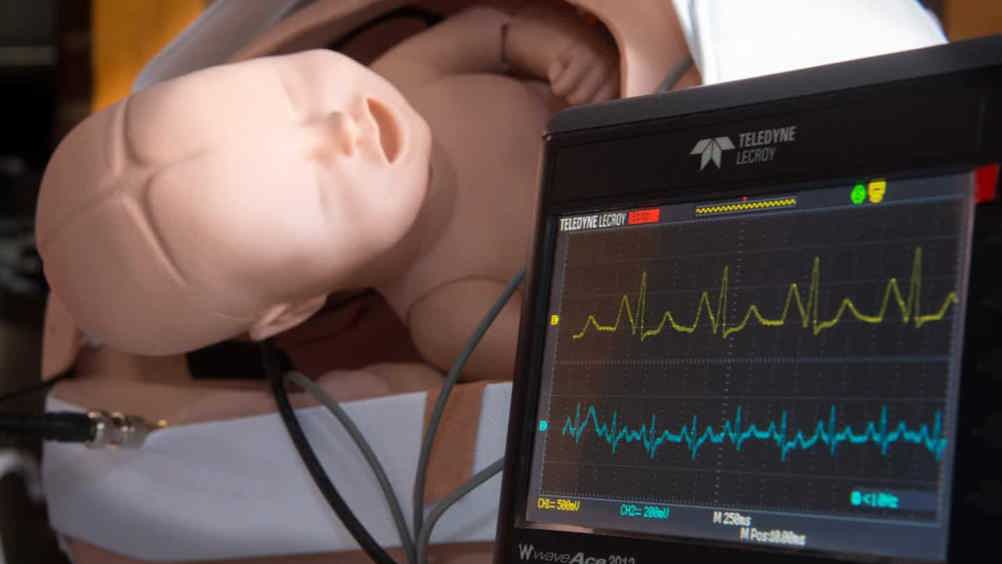New sensor gives more accurate foetal heartbeat readings
A UK-based engineer has developed a prototype device that could allow expectant mothers to measure a foetal heartbeat without visiting hospital.

Alongside movement of the baby in the womb, foetal heartbeat is a primary indicator of the health of an unborn child. During high-risk pregnancies in particular, where factors such as high blood pressure, diabetes or preeclampsia are at play, regular monitoring of the baby’s cardiac activity is vital. Currently, however, these checks are almost exclusively carried out at hospital, leading to numerous potentially stressful visits.
The new device, developed by Sussex University’s Dr Elizabeth Rendon-Morales, enables in utero foetal electrocardiogram (ECG) monitoring by simply placing a sensor on the woman’s abdomen. It is an electrometer-based amplifier prototype that uses Electric Potential Sensing (EPS) technology, accurately isolating the baby's heartbeat from the mother's and helping to detect congenital cardiac diseases such as arrhythmia.
"Currently expectant mothers with health concerns about their babies have to go through the stress of going to hospital to check on the heartbeat of their child,” said Dr Rendon-Morales, a lecturer in Electrical and Electronic Engineering at Sussex University. “With this new technology, they will be able to do this from the comfort of their own home, which will be much better for the welfare of mother and baby.
Register now to continue reading
Thanks for visiting The Engineer. You’ve now reached your monthly limit of news stories. Register for free to unlock unlimited access to all of our news coverage, as well as premium content including opinion, in-depth features and special reports.
Benefits of registering
-
In-depth insights and coverage of key emerging trends
-
Unrestricted access to special reports throughout the year
-
Daily technology news delivered straight to your inbox










Water Sector Talent Exodus Could Cripple The Sector
Maybe if things are essential for the running of a country and we want to pay a fair price we should be running these utilities on a not for profit...